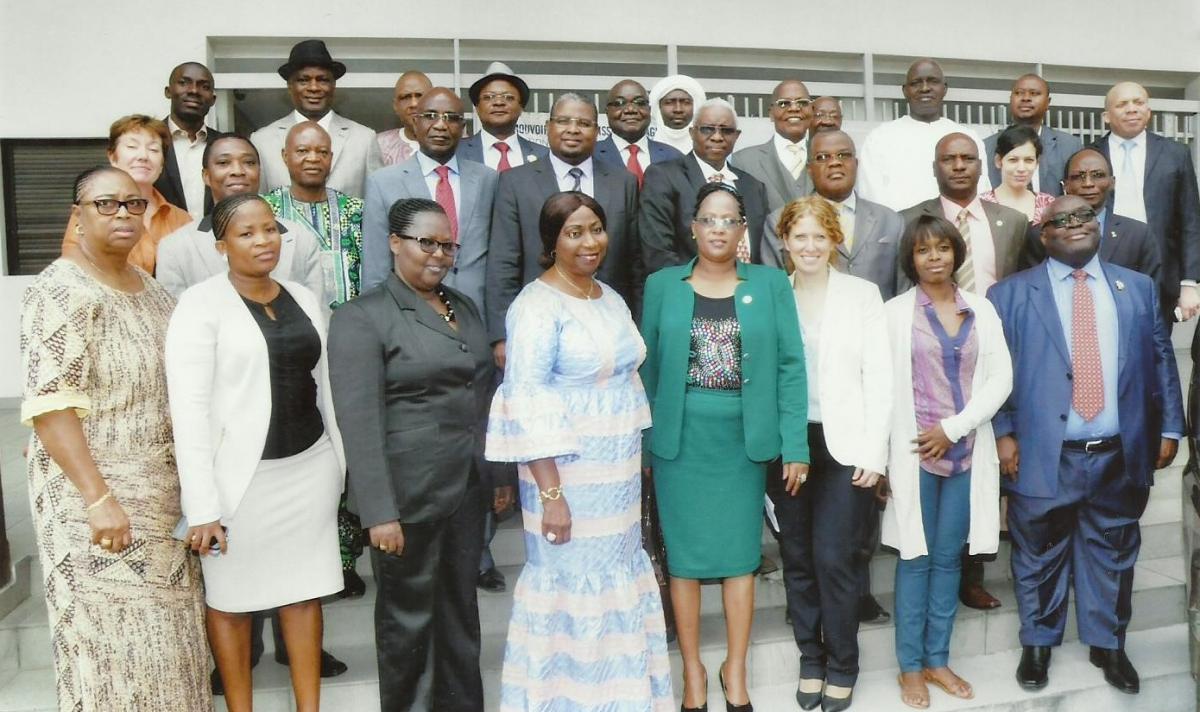Promoting Sustainable Investments in Agriculture: Legal and policy options in Abidjan, Côte d’Ivoire
Training for Parliamentarians in West Africa
The Pan African Parliament (PAP) together with West African parliaments – the Economic Community of West African States (ECOWAS Parliament) and Inter-Parliamentary Committee of the West African Economic and Monetary Union (WAEMU) (IPC-WAEMU), organised a three-day training workshop titled Promoting Sustainable Investments in Agriculture: Legal and policy options in Abidjan, Côte d’Ivoire, from 14 to 16 December 2015. More than 40 participants from the three parliaments and invitees from the East African Legislative Assembly (EALA) attended the workshop.
The training is part of Phase 2 of the project “Making Agricultural Investment Work for Africa,” and provided legal and political tools to promote responsible and sustainable investment, including model contracts for both the leasing of farmland and contract farming. The training also focused on the implementation of the CFS Principles for Responsible Investment in Agriculture and Food Systems (CFS-RAI) and the new Directives on Land Policies.
Additional downloads
Upcoming events
Building Bridges: The State of Nature-Based Investments
Join us for a panel at the Building Bridges conference in Geneva, Switzerland, to discuss the state-of-play of nature-based investments and the potential opportunities they present.
Through Her Lens: Women leading change in sustainable agriculture and market inclusion
Despite the critical role that women play in agricultural production, they still do not have equal access to global agricultural supply chains on terms that benefit them.
A Municipal Perspective on the Value of Natural Infrastructure
This webinar will showcase examples the cost-effectiveness of natural infrastructure from a municipal perspective. Focusing on what municipalities need—what evidence and numbers they rely on, and what tools and planning processes are required to ensure that natural infrastructure is assessed alongside traditional infrastructure for cost-effectiveness.

